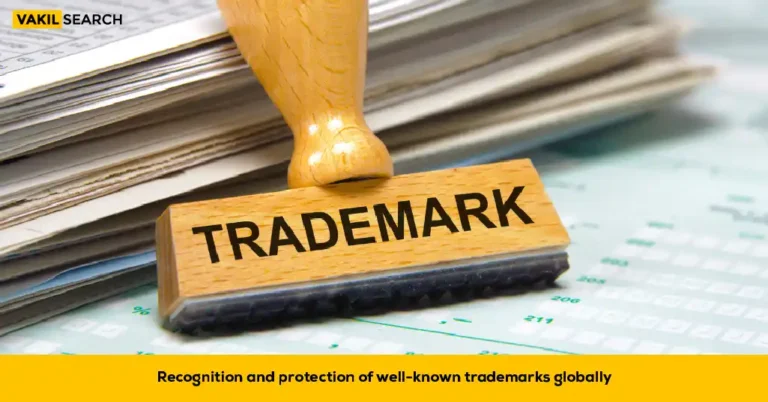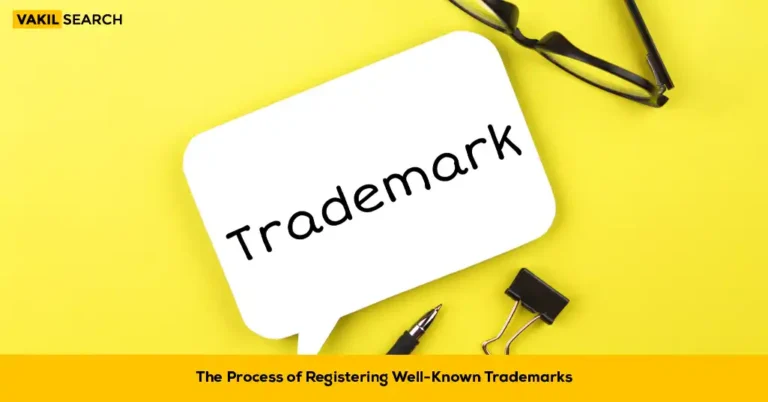Tailor your trademark registration strategy with industry-specific guidelines. Learn about nuances, regulations, and best practices for trademark registration in various sectors to safeguard your brand effectively.
Trademark registration is a crucial step for businesses across various industries to protect their brand identity and intellectual property. While the general process of trademark registration remains consistent, there are industry-specific considerations and guidelines that businesses should be aware of to navigate the trademark registration process effectively. Let’s explore some industry-specific guidelines for trademark registration:
Technology and Software Industry:
- Descriptive vs. Distinctive Marks: In the technology and software industry, where innovation is rampant, using descriptive terms to describe products or services is common. However, such terms may be challenging to register as trademarks due to their lack of distinctiveness. Businesses should strive to create distinctive brand names that are memorable and easily recognizable to consumers.
- Monitor Emerging Trends: Given the rapid pace of technological advancements, businesses in the technology sector must monitor emerging trends and developments to ensure that their trademarks remain relevant and distinctive. This includes staying informed about new technologies, industry terminology, and emerging market segments to avoid potential conflicts with existing trademarks.
- Protecting Software Names and Logos: Software names and logos are valuable assets for technology companies. When registering trademarks for software products, businesses should consider not only the name of the software but also the logo, iconography, and user interface elements that contribute to the brand identity. Securing trademark protection for both the name and visual elements helps prevent competitors from capitalizing on brand recognition.
Fashion and Apparel Industry:
- Design and Aesthetic Elements: In the fashion and apparel industry, trademarks often extend beyond brand names to include logos, designs, patterns, and even product packaging. Businesses should consider trademarking unique design elements, such as fabric patterns, garment designs, or distinctive packaging, to protect their brand identity and prevent unauthorized copying or counterfeiting.
- International Considerations: Fashion brands often operate in global markets, making international trademark protection essential. Businesses should conduct thorough trademark searches and consider registering their trademarks in key markets where they sell or plan to expand their products. International registration systems like the Madrid Protocol can streamline the process of obtaining trademark protection in multiple countries.
- Brand Extensions and Collaborations: Fashion brands frequently engage in collaborations with designers, celebrities, or other brands to launch limited-edition collections or product lines. When registering trademarks for collaborative projects or brand extensions, businesses should clarify ownership rights and usage permissions to avoid potential disputes over trademark ownership or infringement.
Food and Beverage Industry:
- Protecting Product Names and Logos: Product names and logos are integral to branding in the food and beverage industry. When registering trademarks for food and beverage products, businesses should ensure that their trademarks are distinctive and not merely descriptive of the product’s ingredients or characteristics. Unique and memorable brand names help consumers distinguish products in a crowded marketplace.
- Geographical Indications: Certain food and beverage products are associated with specific geographical regions known for their quality or authenticity, such as Champagne, Parmigiano-Reggiano, or Darjeeling tea. Businesses producing goods with geographical indications should consider seeking protection for these indications as certification marks or collective trademarks to prevent misuse by unauthorized producers.
- Compliance with Regulatory Requirements: The food and beverage industry is subject to strict regulatory requirements governing labeling, packaging, and product claims. Businesses should ensure that their trademarks comply with applicable regulations and do not make false or misleading claims about the quality, origin, or composition of their products.
Conclusion:
Trademark registration is a critical aspect of brand protection for businesses across diverse industries. By understanding industry-specific guidelines and considerations, businesses can develop effective trademark strategies that safeguard their brand identity, differentiate themselves in the marketplace, and mitigate the risk of infringement or misappropriation of their intellectual property.
Whether in the technology, fashion, food, or any other industry, proactive trademark registration is essential for establishing a strong and resilient brand presence in today’s competitive business landscape.
FAQs: Industry-Specific
Why are industry-specific guidelines important for trademark registration?
Industry-specific guidelines help businesses navigate the unique trademark registration requirements, considerations, and challenges specific to their respective industries, ensuring compliance with industry standards and maximizing the effectiveness of trademark protection strategies.
What are some examples of industries with specific trademark registration guidelines?
Examples include the pharmaceutical and healthcare industry, where trademarks must comply with regulatory requirements and avoid misleading or deceptive claims; the technology and software industry, where trademarks often involve unique product names, logos, and slogans; and the food and beverage industry, where trademarks may be subject to labeling and packaging regulations.
What are some considerations for trademark registration in the pharmaceutical and healthcare industry?
Considerations include ensuring compliance with regulatory requirements for drug names and product labeling, avoiding false or misleading claims in trademarks, and conducting comprehensive clearance searches to assess potential conflicts with existing pharmaceutical trademarks.
What are some considerations for trademark registration in the technology and software industry?
Considerations include choosing distinctive and non-generic trademarks that reflect the innovative nature of technology products or services, conducting clearance searches to avoid infringement of existing trademarks, and addressing unique challenges related to domain names and online brand presence.
What are some considerations for trademark registration in the food and beverage industry?
Considerations include compliance with labeling and packaging regulations for food and beverage products, avoiding generic or descriptive terms that may be difficult to protect as trademarks, and conducting searches to ensure that trademarks do not infringe on existing brands in the industry.
How do industry-specific regulations and standards impact trademark registration?
Industry-specific regulations and standards may impose additional requirements or restrictions on trademark registration, such as limitations on the use of certain terms or symbols, requirements for certification or quality control, or compliance with labeling and advertising regulations.
What role do consumer perceptions and expectations play in trademark registration for specific industries?
Consumer perceptions and expectations influence trademark registration by shaping the types of marks that are considered distinctive, memorable, and indicative of quality or origin within specific industries. Trademarks must resonate with target consumers and align with industry norms and expectations to be effective.
How can businesses ensure compliance with industry-specific guidelines when selecting and registering trademarks?
Businesses can ensure compliance by consulting industry-specific experts or legal counsel familiar with the regulatory requirements and standards applicable to their industry, conducting thorough trademark searches and due diligence, and proactively addressing any potential conflicts or compliance issues.
What are the consequences of failing to comply with industry-specific trademark guidelines?
Consequences may include rejection of trademark applications by trademark offices or regulatory agencies, challenges to the validity or enforceability of trademarks by competitors or industry stakeholders, and potential legal liabilities for infringement or misleading advertising.
How can businesses leverage industry-specific trademark guidelines to strengthen their brands and market position?
Businesses can leverage industry-specific guidelines to develop distinctive and legally enforceable trademarks that resonate with consumers, differentiate their brands from competitors, and comply with regulatory requirements, ultimately enhancing brand recognition, trust, and market competitiveness.










